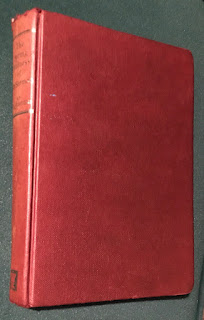The story starts out with the history of a puritan family which leads to their problem of the youngest daughter, who has no prospects and the family little money (or will) to provide a dowry for her to wed her off. The real problem is that she is charming and headstrong and they all suck, just the worst kind of uptight moralists who are constantly scandalized and punishing themselves and each other. Fucking Puritans. Her fate seems pretty shitty until her brother remembers a distant uncle of some means who may be interested in providing for her. He sends for her in a gruff, commanding tone that offends her family and then really pisses them off when he sends her 20 silver coins to do with what she will (and what she will is buy proper, fashionable clothes for the trip out, the horror!). This first section is deliciously enjoyable and somewhat nerve-wracking as she has no idea what this older male relative will be like.
He turns out to be awesome, like her when he was younger but now a Justice of the County and well respected in Pendle County. He immediately recognized what a bunch of assholes her family was but it also surprised at what she is like, as he had expected more of a docile maiden. The two end up making an awesome investigative team, as she has with and manners, deep learning of the scripture (which helps endear her to the Puritans in the region) and writing skills (to be his clerk). It's such a great set up that one could see an entire television series based on these two.
Unfortunately, the adventure we get here, which is the bulk of the narrative, is only okay. There are dark clouds over Pendle. People and children have died in odd experiences, often after conflict with beggar women who live in the forest. Actually, the back story is quite interesting. It's the way it is presented that leaves it lacking, with little real suspense. The reader pretty much knows what is going on about halfway through the book and much of the plot concerns them trying to get evidence to be able to convict the witches. This is more than was done in the actual history and thus further critiques this book. It was written in 1951 and Neill comes from an establishment family in the Lancashire region, so he seems to reinforce the old narrative about witches, when we pretty much understand today that these trials were a way for Protestant england to force its authority on the marginalized (and further oppress women and destroy traditions that connected people to the land). It's ironic because by centering the narrative on a young woman and making her super awesome, he was upending some of the gender politics of the time.
The descriptions of the region, the people, their social structures and culture are rich and very well done. Despite my misgivings about the storyline in the second half, this still was a rewarding read as it helped me to better understand this period in England, and particularly the conflict between Protestants and Roman Catholics in this time when the two religions traded power back and forth in England.














